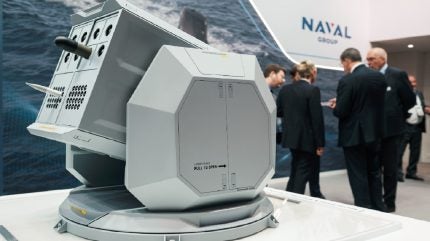
Naval Group has signed a memorandum of understanding (MoU) with Thales and KNDS to collaborate on integrating their solutions into the multipurpose and modular launching system (MPLS).
This system is designed to address asymmetric and protean threats, enabling the deployment of multiple effectors with unprecedented payload capacity and simplified onboard integration.
The MPLS moves away from the traditional ‘one launcher per type of weapon’ approach, introducing a new system concept that features interchangeable ammunition modules.
These modules can be reconfigured according to operational requirements.
It provides a range of effectors, including rockets, missiles, grenades, underwater weapons, decoys, and UAVs, to respond to various threats in a cost-effective manner.
With an increased ammunition carrying capacity of approximately 1,000kg, the MPLS allows a ship to be fitted with one or more turrets that can combine different weapon configurations.
The system comprises a turret capable of moving on two axes, both in circle and elevation, integrating firing computers and a fire control system that enables it to hit manoeuvring targets.
It can function in stand-alone mode or be connected to the combat system,
providing a fleet-wide approach that enhances logistical support and crew training.
Additionally, the MPLS introduces a partnership concept for product development and marketing, designed to be adaptable to different ammunition types based on the operational user’s needs.
Naval Group collaborates with its partners to integrate each ammunition module, with Thales contributing 70mm and 68mm rockets and lightweight multi-role missiles (LMM), while KNDS provides a range of innovative ammunition.
Additionally, work has commenced with MBDA on integrating Mistral and Akeron families of missiles into the MPLS.
This comes just after Naval Group, Navantia and Fincantieri, along with Naviris, signed the initial consortium agreement for the second phase of the Modular and Multirole Patrol Corvette project.




